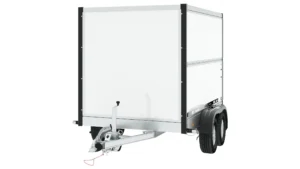The Evolution and Impact of Forklift Trucks in Modern Warehousing
2025-07-15 05:25:25
The forklift truck, a cornerstone of modern logistics, has undergone significant technological evolution since its inception. Initially designed for basic lifting tasks, today’s forklifts integrate advanced automation, energy efficiency, and safety features. According to industry data, the global forklift market is projected to grow at a CAGR of 6.8% from 2023 to 2030, driven by rising demand in e-commerce and manufacturing sectors.
One of the key innovations in forklift truck technology is the shift toward electric-powered models. Electric forklifts now account for over 60% of new sales in Europe and North America, thanks to their lower emissions and operational costs. Lithium-ion batteries, in particular, have extended runtime and reduced maintenance needs, making them a preferred choice for high-throughput warehouses. Additionally, automation has transformed forklift operations, with autonomous guided vehicles (AGVs) and robotic forklifts streamlining workflows in smart warehouses.
The versatility of forklift trucks extends beyond traditional warehousing. In construction, heavy-duty forklifts handle bulky materials, while in agriculture, specialized models assist in loading and transporting produce. The food and beverage industry relies on stainless-steel forklifts for hygienic operations. These diverse applications underscore the forklift truck’s adaptability across sectors, contributing to its sustained market growth.
Safety remains a critical focus in forklift truck design. Modern models feature collision avoidance systems, load stability sensors, and operator assist technologies. OSHA reports that forklift-related incidents have decreased by 22% over the past decade, attributed to these advancements. Training programs and telematics further enhance safety by monitoring operator behavior and equipment performance in real time.
Looking ahead, the forklift truck industry is poised for further innovation. Hydrogen fuel cell technology promises zero-emission operations, while AI-driven predictive maintenance could minimize downtime. As warehouses embrace Industry 4.0, the integration of IoT-enabled forklifts will optimize inventory management and logistics. The forklift truck, once a simple lifting device, now stands at the forefront of smart material handling solutions.








